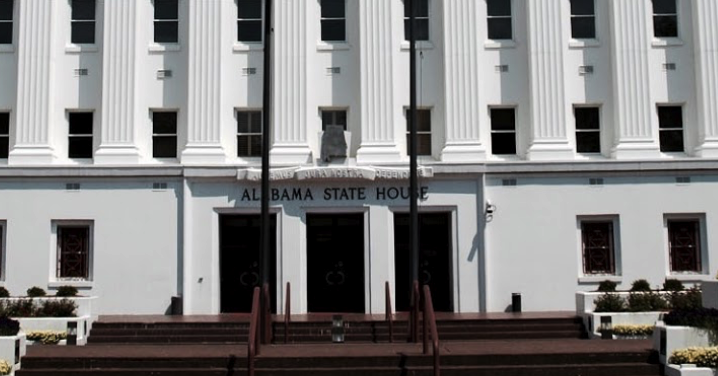If you think that your personal property cannot be taken away from you by an Alabama law enforcement officer, without due process of law, you are mistaken. You probably think that you would have to be convicted of a criminal offense, such as trafficking drugs, to have your automobile seized and sold, but you could be wrong.
Even if you are wrongly arrested for an offense, your personal property, cash, cellphone, automobile, jewelry, etc., are taken from you then the charges are dismissed and you are released, there is no guarantee that your property will be returned.
There is a name for it: Civil Asset Forfeiture.
The Alabama District Attorneys Association is taking steps to create a reporting system to keep track of the use of civil asset forfeiture in Alabama.
The ADAA, Rep. Arnold Mooney, the Alabama Law Enforcement Agency and other public policy groups announced the creation of the Alabama Forfeiture Accountability System.
The new database system will track and compile civil asset forfeiture cases in Alabama. Reports will be submitted to state lawmakers and state officials, and the ADAA said useful information on forfeitures will be available to the public.
“This has been a work in progress since last spring, when legislation to create a data collection and reporting system for civil asset forfeiture system died when time ran out on the legislative session,” said Barry Matson, executive director of the Alabama District Attorneys Association and the state Office of Prosecution Services. “But we continued to work with many groups – from law enforcement and state agencies to policy groups with an interest in asset forfeiture – to voluntarily put the system in place.”
The U.S Supreme Court last week mandated an overhaul of how America’s police departments and courts handle the seizure of assets from people accused of a crime. The court said the Eighth Amendment protections against excessive fines also apply to states.
Civil asset forfeiture allows law enforcement to seize property from those charged with a crime if they suspect the property was used in the commission of a crime.
Police can often then keep or sell the property. Owners of the property need not be arrested or convicted of a crime for their cash, cars or even real estate to be taken away permanently by the government.
“Civil forfeiture is an assault on America’s deeply cherished values of due process and private property rights,” noted Institute for Justice Senior Legislative Counsel Lee McGrath. “This bill will ensure that only convicted criminals—and not innocent Alabamians—lose their property to forfeiture. No one acquitted in criminal court should lose his or her cash, car, or home in civil court.”
The state is in dire need of drastic reform. One study by the Institute for Justice ranked Alabama’s civil forfeiture laws as “among the worst in the nation.” And for good reason: Unlike criminal cases, which require proof “beyond a reasonable doubt,” Alabama prosecutors only have to make their case to the court’s “reasonable satisfaction” to forfeit property in civil court.
Spouses, parents and other third-party owners bear the burden of proof and effectively have to prove their innocence in order to win back their cash or car. Since these cases proceed in civil, not criminal, court, claimants do not have a right to a court-appointed attorney. In other words, criminal defendants have more safeguards for their rights than innocent Alabamians trying to get back a vehicle they may have lent unknowing to the suspect.
Alabama law enforcement officials gathered in Montgomery on Thursday to announce a voluntary reporting initiative that promises to keep track of civil asset forfeiture proceedings and how law enforcement agencies use the money they get from them.
This is a step in the right direction, and it promises transparency where currently there is almost none. But more should be done to curtail civil asset forfeiture, or better yet, abolish the practice outright.
In contrast to criminal asset forfeiture, which occurs when the government seizes the ill-gotten gains of someone convicted of a crime, civil asset forfeiture allows the government to take the property of people before they’re found guilty of any wrongdoing. Even if the person is acquitted, or never formally charged, they may find it difficult if not impossible to get their property back.
Douglas A. Blackmon detailed the practice in his groundbreaking book Slavery By Another Name. They called it convict leasing. No matter what they called it the practice became a revenue generator for local judicial systems. They arrested blacks for little or no cause, convicted them and they soon ended up on a working lease to a mine somewhere.
Civil Asset Forfeiture is a law that is antique, just like convict leasing. It should be abolished in its present form. Left unregulated, Civil Asset Forfeiture can become a money generating system for law enforcement. With no accountability and no regulation citizens property rights can soon be trampled. We should all be concerned and let our lawmakers know that we support a re-examination of laws that were enacted in the early days of our State Constitution.
The Opinions Expressed In This Article Are Those Of The Writer And Not Necessarily The Views of The Bibb Voice or Its Editorial Board.
















